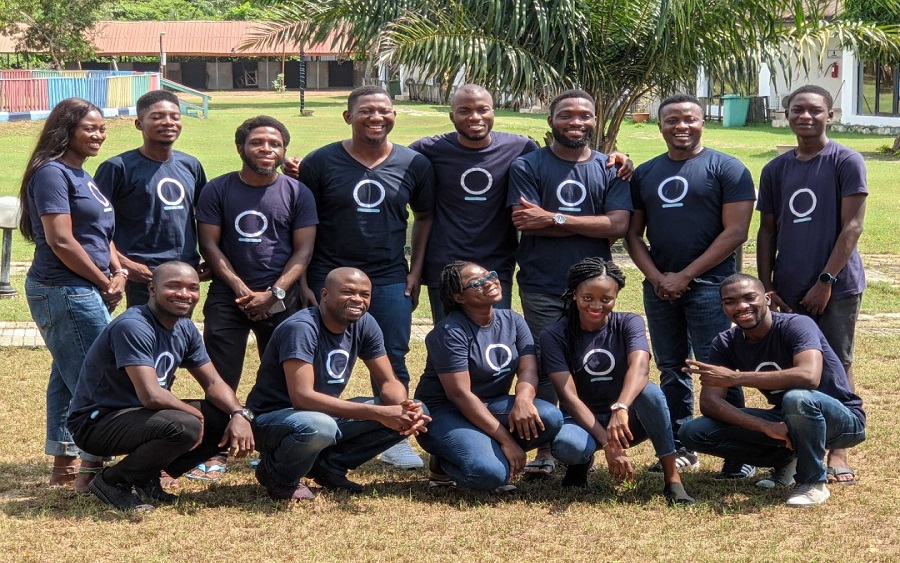Yvonne Elaigwu is Head of Operations at OnePipe, a Nigerian fintech API company that aggregates APIs from banks and fintechs into a standardized gateway that is easy to integrate and makes partnerships with other service providers seamless
OnePipe partners with non-financial institutions to help them launch and cross-sell a variety of financial services such as credit, accounts, and payments.
In this exclusive interview, Elaigwu speaks with Nairametrics about how technology is driving the financial sector in Nigeria, the future of the payment system in the country, and reveals the trends that will drive growth in the Nigerian financial tech space. Excerpts:
How would you describe the position of the current payment systems that are available in the Nigerian business space today?
I’d say our payment systems are growing and evolving. Transaction volume and value are growing exponentially; NIP transactions alone in 2020 were over N 235 trillion, which is nearly 100 times more than the e-payments transaction less than about 8 years ago. The Covid 19 pandemic literally forced the world to prioritize contactless interactions, and the payment system was not excluded. This is probably one of the drivers of the rise and adoption of payment via transfer; PayWithTransfer.
10 years ago, the value of NIP transactions was 4,449,654, as reported by the Central Bank of Nigeria; this was less than 2% of the 378,100,749 pulled in by POS terminals and ATM machines. I remember a time when every saloon and corner store was hustling to get a POS machine from their banks. It was the new in-thing, and everyone needed a machine to receive payments. The store owner and customer both relied on the POS slip to confirm that a transaction was successful. It’s interesting that these store owners and merchants had bank accounts but did not think to accept payments directly into them. Today, the concept of pay with transfer is so accepted that the cab driver, who before now would only accept cash (who probably never went through the POS stage), would, without much ado, share an account number to receive payment for his services. Data supports this shift and growth; the CBN report on e-payments showed that in 2020, “pay with transfer” NIP volume was about 200% more than the volume of payments made on both POS terminals and ATM machines and significantly more in transaction value.
Businesses are more now comfortable with receiving payments digitally, most businesses today are profiled to receive payments digitally, and this is evidenced in the fact that the transaction value and volume of all e-payment platforms are consistently growing.
In what way would you say that technology is impacting the financial sector in Nigeria?
With a mobile network coverage of 99% and data from 2019 Jumia report on Nigeria shows that 87% of Nigerians are mobile network subscribers, which means that technology, when properly directed, can be the tool to reach the unbanked and educate the underbaked.
The rise and proliferation of technology startups in the finance space is the first glaring way that we see technology impacting the finance sector in Nigeria. The prevalence of technology has made it possible for enterprising Nigerians to build solutions that can change people’s lives. These ventures have, over the years attracted billions of dollars worth of capital into the country, provided employment to thousands of people, and in 2021, technology startups contributed about 10% of Nigeria’s GDP. These technology-driven companies are building and shipping solutions targeted at the unbanked and underbanked in the country and making them available on progressive web apps, downloadable apps, USSD, and POS machines. The chances that an individual in the remote village of Obagaji, Agatu, where I come from (where there is no physical bank) with a mobile phone (any kind of mobile phone) is able to access a financial service today is very high and attributed to technology, driven by technology companies.
Technology has made it possible for the regular person to have access to resources on financial instruments, concepts, and data with which they can make informed decisions to improve their life conditions-everything is a google search away.
What are your views on digital currencies? Do you think that they will eventually be implemented in our economy?
I am no subject matter expert here, but it looks to me that they are here to stay. Like all new “products,” they would come with their teething problems, bugs, and losses. Costly mistakes would be made, and lessons would be learned; the Luna scenario of the last couple of days taught me and hopefully the ecosystem that “it’s not really stable unless it is pegged against actual money sitting in a bank account.” It’s like purifying gold; at the end of the day, impurities would be removed, and a gem would emerge. While it may take us some time as a country or an economy to get on board with new technology (e.g., as it did with mobile networks and cell phones), we eventually catch on and make up for lost time. I personally believe that once digital currencies are established, it becomes relatively more mainstream; they would be implemented and even encouraged in our country. This would probably take time, but it is very likely to happen.
What are the trends that will shape the financial space in Nigeria in a few years to come?
I think that the concept of Embedded Finance will take root and grow/shape the Nigerian financial space in a short time from now. This would be evidenced in close partnerships between traditional banks, lenders, and BaaS companies to enable merchants and “regular” entities like the distributors, cooperative societies, farmers’ associations, etc, to provide financial services to the last mile customer. This would improve financial literacy and bank more customers. The thinking is that the farmer who has been “acquired” by his association of farmers would know to ask that entity for a loan to grow his farm.
This entity knows him and his operations intimately enough to offer him this facility. The same can happen with the distributor who acquires his retailers and offers them banking services. What would now begin to happen is that last mile customers are becoming more banked, where they are now incentivised to save their funds within the banking system in order to create transaction trails that make them eligible for credit facilities to grow their businesses and take care of pressing needs.
I also think that we will also begin to see simplified and more secure payment methods as people continue to embrace “pay with transfer.” Data already shows that people are gravitating toward this mode of payment, and the failure rate of card transactions is not making it harder. In the future, the relevance of card payments would be minimized, thereby reducing the associated fraud incidences accompanied by card payments.
Digital banking versus the traditional banking system, do you think there will be a convergence?
Eventually, yes. While digital banking is the “now” and the future, traditional banks are here to stay and will need to come to a place (probably are in that place already) where they decide between fighting digital banks, competing against them, or partnering with them. We are beginning to see partnerships in the US, Europe, and even here in Nigeria between traditional banks and digital banks to birth the concept of Embedded Finance, which is a relatively new concept. We expect to see more of these in the future.
As head of operations at OnePipe, what excites you about working in a startup business in Nigeria?
The challenge of building new products and systems; the joy and feeling of satisfaction from being a part of birthing something that has the propensity to change lives and influence people and economies.
Give us one practical example of a business that gained from the successful solution that OnePipe has delivered to them?
Omnibizz a unified distribution platform in the FMCG space, digitized its operations in the wake of the Covid 19 pandemic. Omnibizz worked with OnePipe to embed financial services such that their customers can now pay directly into the account of their retailer. Their retailers can also place orders, track their sales, pay for their orders, apply for credit, and get approved without leaving the digital platform provided to them by Omibizz.
This has reduced and will continue to reduce the dependence on cash transactions with the attending risks. It offers seamless payments, an opportunity to bank the underbanked retailer, and possible credit to grow their market
In terms of getting the operations of a business right, what is that one piece of advice that you would offer to women who choose to launch startups in Nigeria?
In terms of operations, I would advise that you decide very quickly on the type of company you want to build and find one person whose job it would be to help champion that from scratch. When building a startup, operational practices may not be top on the list of most important things for the company because you’ll be building products, finding product-market fit, and generally just figuring out. With at least one resource dedicated to ensuring that you incorporate standard best practices into your operations and course-correct as you go, you are less likely to run into heavy-duty operational headaches in the future.


















Very insightful piece. Value gained.
Impressive